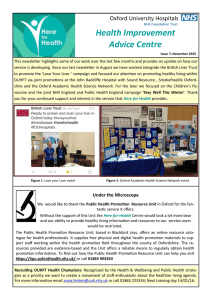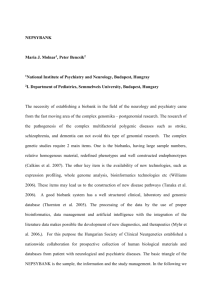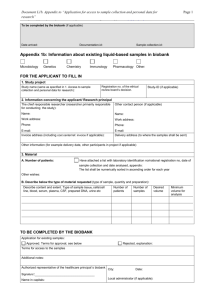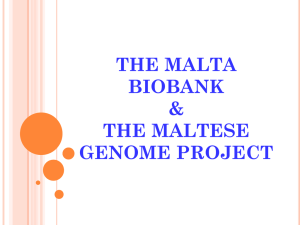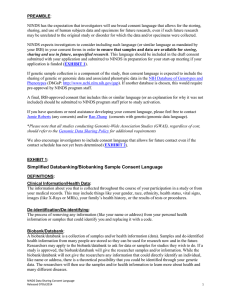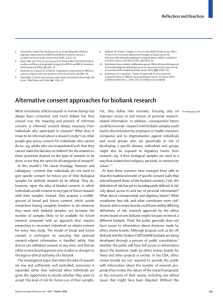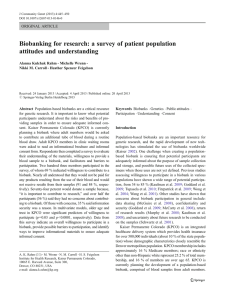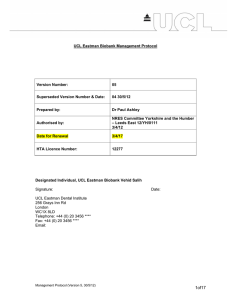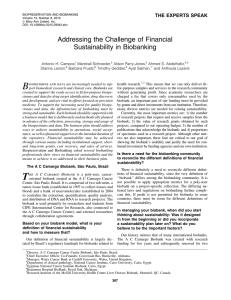Giving removed tissue for research, teaching and audit Oxford University Hospitals
advertisement
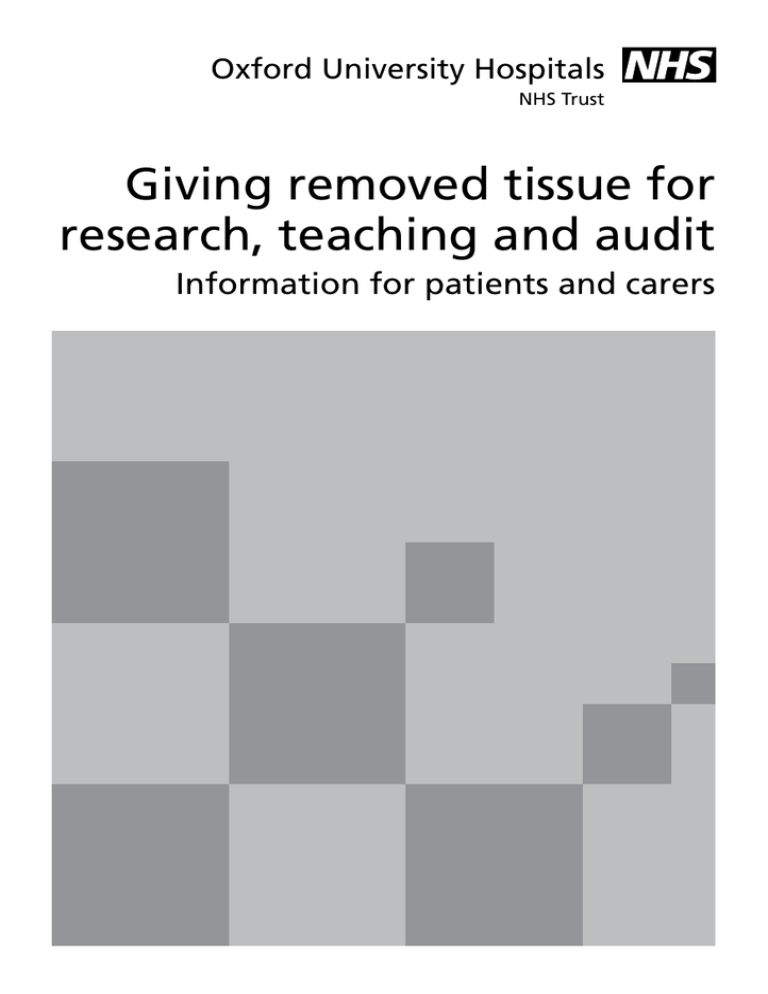
Oxford University Hospitals NHS Trust Giving removed tissue for research, teaching and audit Information for patients and carers We would like you to consider donating some of the leftover tissue necessarily removed at your procedure for use in medical research, education and audit. This leaflet gives information to help you decide if this is something you want to do. You will be able to ask questions when a doctor or nurse meets with you to discuss the clinical procedure, and you will be invited to record your decision on the consent form used for your procedure (‘Agreement to Investigation or Treatment’). If anything is not clear to you or you would like any more information, please ask. Why is human tissue needed for research, teaching and audit? Medical students, nurses and other care providers need to study human tissue (including fluid) as part of their training. The NHS also needs to monitor its own tests and processes (audit). Doctors and scientists can understand disease better by studying human tissue and body fluids. They can also try out different drugs and tests on the tissue before testing them on human volunteers. These studies may lead to the development of new medicines and other treatments, as well as improving ways of detecting diseases earlier. What usually happens to samples? A healthcare professional may remove body tissue as a normal part of your treatment. The sample is first sent for analysis and may help with your diagnosis and treatment. Some of this sample is normally kept as part of your medical record so that it can be examined again as part of your care, now or in the future. Anything left over is usually disposed of respectfully and in accordance with hospital policy. What would happen to my samples if I agree to donate them? With your agreement, tissue and fluid that would be disposed of or only stored in your medical record could be used for medical research, teaching and audit. Enough will always be kept for your medical record: your clinical care comes first. Some of the rest may be stored in a Biobank – a facility that manages the storage and use of human biological samples in a legal, ethical and safe manner. Do I have to agree? It is up to you to decide if you want to allow further use of leftover tissue. Your decision will not affect your treatment or care in any way. The person undertaking the consent process with you can show you where to record your decision to give or decline permission. What if I change my mind? If you agree to your samples being used in research, you can still withdraw your consent at any point. If you do this a long time after giving consent, some samples may already have been used. It is only possible to remove your remaining samples from future use. If you wish to withdraw your consent, please write to the Oxford Radcliffe Biobank Manager at the address on the back page. Who will use the stored samples? Your samples will be used mainly by local researchers or clinical teachers but research projects may take place in hospitals, universities, non-profit institutions or commercial laboratories worldwide. All projects are reviewed independently and must meet regulatory conditions before being allowed to use your samples. Will the samples be used for any genetic tests? Genetic tests may be done, but these will only focus on providing information about disease, not about individuals. It will not affect you or your family. Much research compares genetic material from people with known diseases and those without the disease. This comparison helps to reveal genetic differences that may then be used to develop tests and drugs. Will my medical notes be used? Information about your condition and treatment can add meaning to samples used in research or teaching. Any information provided with samples will not have your name or any other personal details that would identify you. In order to guarantee strict confidentiality, only clinicians or staff with an equal duty of care will be allowed access to your notes. Will anyone make money from my samples? We may charge researchers a fee to access tissue, but this is only to cover the costs of collecting and storing your samples. If research leads to a new test, treatment or drug, this may be sold. It will not be possible for you to make a claim for money made as a result of research that involved your samples. Where can I find out more? If you would like more information to help you make a decision, please talk to your doctor or nurse, or contact the Patient Advice and Liaison Service (PALS) 01865 221 473 / 740 868. If you need an interpreter or need a document in another language, large print, Braille or audio version, please call 01865 221473 or email PALSJR@ouh.nhs.uk Biobank Manager, Oxford Radcliffe Biobank Nuffield Division of Clinical Laboratory Sciences Radcliffe Department of Medicine Level 4 Academic Centre John Radcliffe Hospital Oxford OX3 9DU orbmanager@ndcls.ox.ac.uk OMI 5586P
